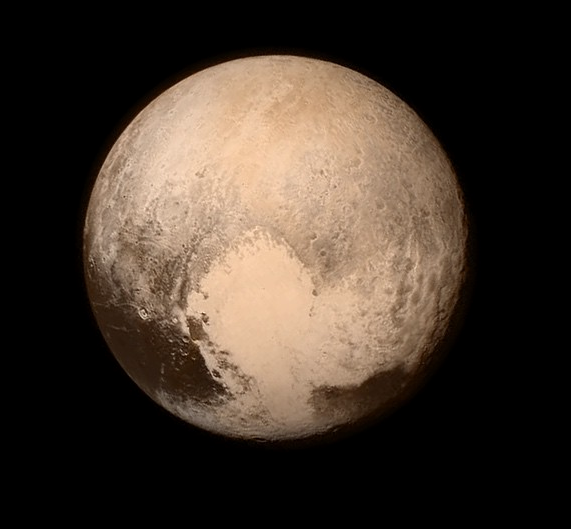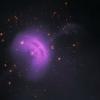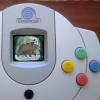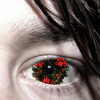Looking at faraway stuff
-
Took me a while to notice the jokeBlue Swirl wrote:
Ed_Flanders (and unnamed associate), earlier today.Ed_Flanders wrote:Plus, the bins are great when I go trekking. I win... in the most minor way possible.
I win... in the most minor way possible. -
I had a fairly hefty telescope but sold it a couple of years ago as I wasn't getting any use out of it. The few times I did use it, were very cool though. First time looking at Jupiter was great. First time really looking at the moon was incredible. I sat there for hours.
I still have a smaller telescope that works surprisingly well. If I was inclined to spend a few hundred on a good lens for it I'd be able to get a really good view through it. -
I have a 10" reflector, but I haven't set it up in a few years as I live in a flat and don't have a garden. Light pollution is a bitch, but there are still amazing things you can see. Anything with a low surface brightness will be washed out (this unfortunately includes faint nebulae, and the fringes of galaxies), but star clusters and bright nebula are spectacular. The orion nebula, for example, is absolutely stunning, and there's a double cluster of stars in cassiopeia which is excellent too.
All the planets should be visible even with heavy light pollution. -
The variety in moons/planets is rather amazing. Oxidation on Pluto wasn't predicted but these things always confound. Just think of the variety with a whole Universe to pick from.
-
Oxidisation? Do you mean the UV on hydrocarbons, or is this referring to something different? Not trying to be a dick, this just isnt something I've read yet.
I'd add that the planets through a telescope can be a little bit underwhelming if you expect too much. -
voices wrote:Oxidisation? Do you mean the UV on hydrocarbons, or is this referring to something different? Not trying to be a dick, this just isnt something I've read yet.
It looks red. That's iron oxide. -
That's not in line with current thinking - http://www.astronomy.com/news/videos/2015/07/pluto-the-other-red-planet
Edit: Sorry - I am being a dick, but I don't mean to be. I don't know enough about this to speak with absolute authority, but I'd be very surprised if iron had much to do with Pluto's geology. -
Yep, you're right, it's also red on it's dark side which would rule out oxidation like Mars.
-
Plus there isn't much iron on Pluto because it's likely to be formed from ice and carbon dioxide and stuff like that.
Anyway, I was looking into this a little bit in an attempt to write a longer explanation , but then I got bored, realised you lot would be bored too, and have decided to link to the wikipedia page on Tethys (which is a moon of Saturn). It's got a density of less than water, which is like, whoa. -
Jupiter's moons are super awesome, but there is some weird shit going on round Saturn.
-
Titan is the best moon. To think in a few billion years with a red giant sun it might harbour life.
Hell, it might already."Sometimes it's better to light a flamethrower than curse the darkness." ― Terry Pratchett -
voices wrote:Plus there isn't much iron on Pluto because it's likely to be formed from ice and carbon dioxide and stuff like that.
Anyway, I was looking into this a little bit in an attempt to write a longer explanation , but then I got bored, realised you lot would be bored too, and have decided to link to the wikipedia page on Tethys (which is a moon of Saturn). It's got a density of less than water, which is like, whoa.
How can that happen? There's so much I don't understand.
-
yourfavouriteuncle wrote:How can that happen? There's so much I don't understand.
Where water can exist as ice in space it seems to be the primary driving force behind planetary formation. It's one explanation for the increase in the size of planets outwards from Mars (where you would typically expect there to be less 'stuff' in the proto-planetary disk). So, it's not odd that stuff is made from ice, but it's super odd that this moon is almost exclusively ice - especially since there are other moons around Saturn which are much denser.
Titan is a pretty good moon. I've given a lot of thought to which moon is the best, and Titan is up there. Triton is good too, being all retrograde. Our moon's pretty funky as well. It's a tough one. -
Europa is also pretty spiffy. I think there's a few other moons now thought to harbour oceans underneath the surface ice. Enceladus is another."Sometimes it's better to light a flamethrower than curse the darkness." ― Terry Pratchett
-
I feel like Ganymede doesn't get much love, but it's a good moon with lots of interesting stuff going on.
-
A quick read indeed shows it is a fascinating moon. The four Galilean moons are obviously special for their place in the history of astronomy.
Iapetus is also a strikingly beautiful moon with the snowball splatter appearance."Sometimes it's better to light a flamethrower than curse the darkness." ― Terry Pratchett -
Incidentally all beautiful names for children, and my back ups if Jupiter is vetoed.
-
Dibs on the name Weywot
(Quaoar's moon)"Sometimes it's better to light a flamethrower than curse the darkness." ― Terry Pratchett -
Show networks
- Fuck Mugtome
- BlueSwirl
- Xbox
- Blue5wirl
- PSN
- BlueSwirl
- Steam
- BlueSwirl
- Wii
- 3DS: 0602-6557-8477, Wii U: BlueSwirl
Send messageVela wrote:(Quaoar's moon)
Never heard of that before, that's awesome. According to Wikipedia, the potential-dwarf planet's full name is 50000 Quaoar, which is definitely child protective services bait.For those with an open mind, wonders always await! - Kilton (monster enthusiast) -
Show networks
- https://www.facebook.com/patrick.horgan.7186
- superflyninja
- Xbox
- SuperflyninjaX
- Steam
- superflyninjax
Send messageWeird stuff on Saturn?
i also got the Starwalk2 app. really handy that. So I actually was able to take out my telescope last night, first cloud free night in ages. I had forgotten to align my finder scope so accurately finding stuff to look at was not easy. I did manage to peep a few stars in the big dipper though.
This might sound like a moronic question. But actually looking through the eyepiece on the telescope its kinda tough, i nearly have to hold my eye open and position it just right to be able to see anything. Is there some technique to this or am i being a plank?http://horganphoto.com My STILL under construction website
PSN : superflyninja -
Ive struggled too; optical astronomy is not a strength of mine.
In simple terms a few tips that might be handy are to get dark adjusted too. Avoid looking at any bright light sources on the ground/in the distance. Wear sunglasses to help adjust.
I think it might also be easier to see if you keep both eyes open even if you just have a single eye in the eyepiece. I find it helps my vision.
And check the surface the telescope is on. Small vibrations are a pain."Sometimes it's better to light a flamethrower than curse the darkness." ― Terry Pratchett -
Really high magnification lenses can be tough to look through because the actual lens is so small. The slightly nicer ones I've used have a cup for your eye, so it holds you in the right place and blocks out light.
I generally prefer looking through much lower magnification lenses with a wider field of view, but it depends what you're looking at. -
It also makes it a billion times easier to find what you were pointing the telescope at in the first place.
-
Show networks
- https://www.facebook.com/patrick.horgan.7186
- superflyninja
- Xbox
- SuperflyninjaX
- Steam
- superflyninjax
Send messageIm using the 20mm eyepiece for now...not going near the 4mm yet.....I have binoculars that I must dig out too. A tripod/stand for the binoculars is needed? If so any recommendation for a cheap decent one?http://horganphoto.com My STILL under construction website
PSN : superflyninja -
Yeah, 4mm is a bit small. I don't think I've got a lens that small currently, but I haven't had my telescope out in a long time so I can't say for certain. From memory, I had a 4mm for an old refractor and my eyelashes made it almost impossible to look through. It also made everything dull and shakey, but that wasn't the lenses fault.
Edit: and because the telescope didn't have a motor, everything just whizzed out of view.
Howdy, Stranger!
It looks like you're new here. If you want to get involved, click one of these buttons!
Categories
- All Discussions2,715
- Games1,879
- Off topic836








